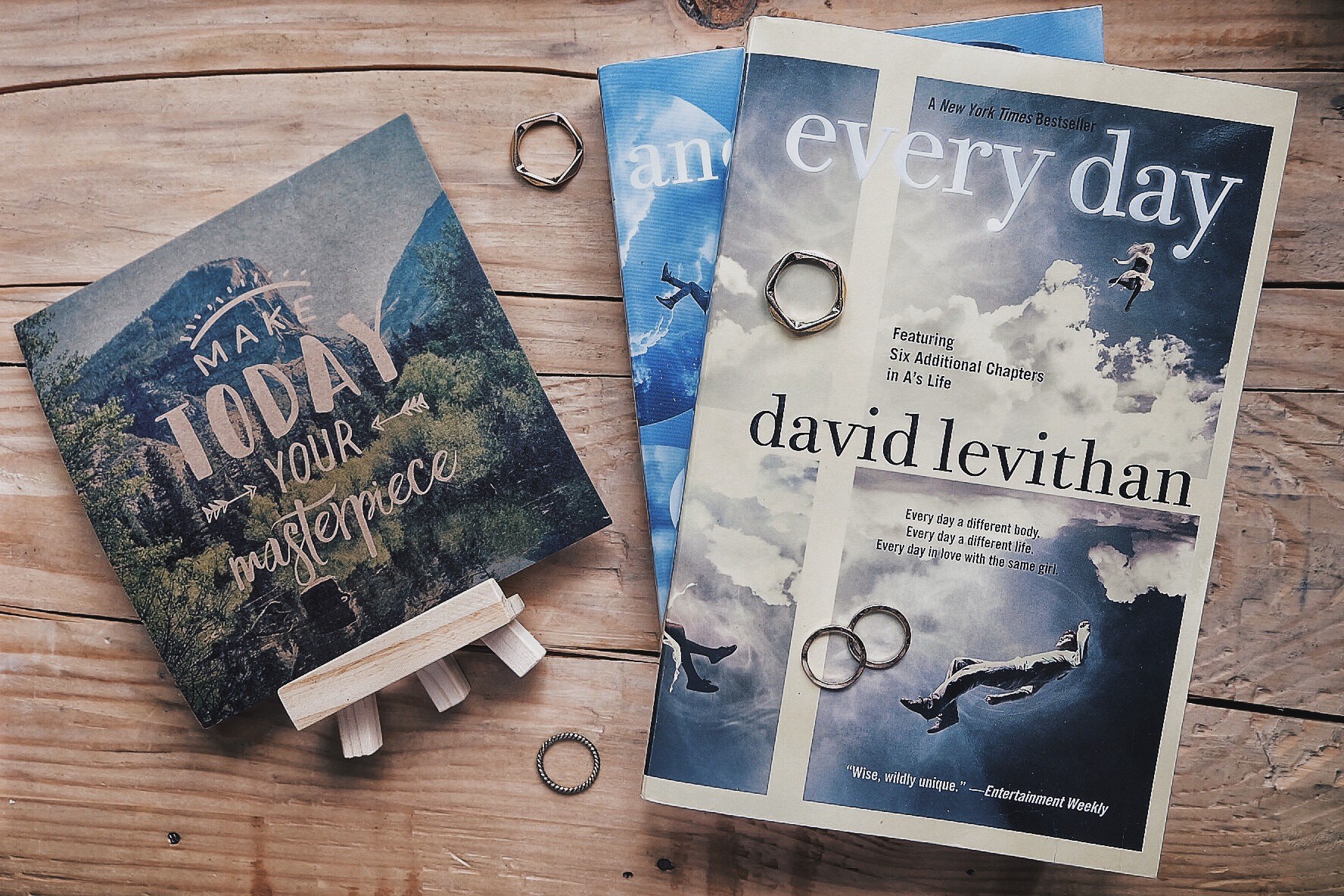I first discovered my love for David Levithan as a writer when I read “The Lover’s Dictionary,” a novel formatted like a dictionary that told a love story through poetic prose. I fell for Levithan’s vivid and eloquent language and craved to read more of it, and that’s how I came across “Every Day,” a romance with a unique twist.
The premise follows a protagonist named A who wakes up every day in a different body living a different life, eventually experiencing the essence of every gender, race and lifestyle. Every day, A wakes up in a whole new world and has to quickly adjust to a foreign family, home and culture.
The protagonist has neither a place to call home nor a person to call family, and they struggle to find any sense of identity because of this. The story picks up when A meets Rhiannon, however, the girl A falls in love with.
A goes on an endless pursuit to find and reunite with Rhiannon each day, aching to somehow make a connection with the same girl through countless different bodies — male and female, white and black, gay and straight.
Many things factored into my deep love for “Every Day,” the first and most obvious being the writing itself. Levithan had me highlighting multiple phrases on each page that either touched me emotionally, opened my mind or just spoke to the writer within me. In particular, the way that he describes first loves encapsulates a naive euphoria.
“I suddenly realize why people believe in déjà vu, why people believe they’ve lived past lives, because there is no way the years I’ve spent on this earth could possibly encapsulate what I’m feeling,” Levithan wrote. “The moment you fall in love feels like it has centuries behind it, generations — all of them rearranging themselves so that this precise, remarkable intersection could happen.”
Levithan’s portrayal of love in “Every Day” sets it apart from other romance novels: In A’s universe, love has no gender, color or creed. A’s character doesn’t have a body, so they have no way of associating with any race or sexuality. Instead, they fall in love with both boys and girls while in the bodies of either, experiencing love in its truest form.
The novel makes such a profound statement about queerness — and sexuality in general — by creating a being without ties to any gender conformity. A is neither boy nor girl, neither straight nor gay, free to love whomever without facing the pressure of identifying with a certain label.

Instead, A experiences love in way that that is both pure and exceedingly rare. Despite spending most of “Every Day” being in love with Rhiannon, A also mentions a time when they had feelings for a boy — Rhiannon shows outward discomfort after learning this, but A can’t understand why.
Levithan creates a platform where gender, sexuality and love exist on a major spectrum, and he purposely portrays this type of love as honest, vulnerable and liberating. It’s refreshing to read a love story with absolutely no heteronormativity or gender norms — that doesn’t happen often.
The discussion of humanity as a whole in “Every Day” also pulled at my heartstrings. By reading about an experience where one being can truly understand and empathize with so many, I myself felt more connected with humanity. The protagonist looked through the eyes of people from so many different cultures, backgrounds and identities, and seeing life through so many different lenses taught A how similar they all are.
“No matter what our religion or gender or race or geographic background, we all have about 98 percent in common with each other,” Levithan wrote. “For whatever reason, we like to focus on the 2 percent that’s different, and most of the conflict in the world comes from that.”
Despite spending their entire existence adapting to different bodies and lifestyles, all A learns is how every gender, sexuality, religion and race are more similar than they are different. “Every Day” uses its symbolic story to communicate that one very important truth.
“Every Day” has a unique definition of identity that particularly inspired me. The protagonist’s identity is defined only by personality traits and internal headspace — no shallow physical characteristics that keep A from true self-expression.
And the reader must go outside their comfort zone in getting to know the protagonist, since their gender and physical features change every day. Readers attain a profound understanding of the type of person A is, apart from meaningless details or restrictions that might alter their perceptions, such as assigning a race or gender to the character.
Levithan fits a lot of important morals and ideals into a lighthearted love story. He brings up issues of gender, sexuality, first loves, identity and plenty more, all through ornate language and a captivating storyline.
Since I’m such a sucker for a good romance novel, it’s no surprise that I found a new favorite in one that also managed to bring up important social issues. And I’m not the only one: readers have loved “Every Day” so much that it has recently been adapted into a movie.
Something tells me I might not be as enchanted with that adaptation as I was with Levithan’s original work. It won’t have his original writing style or A’s internal monologue, but, for the love of the story, maybe I’ll give it a shot.











